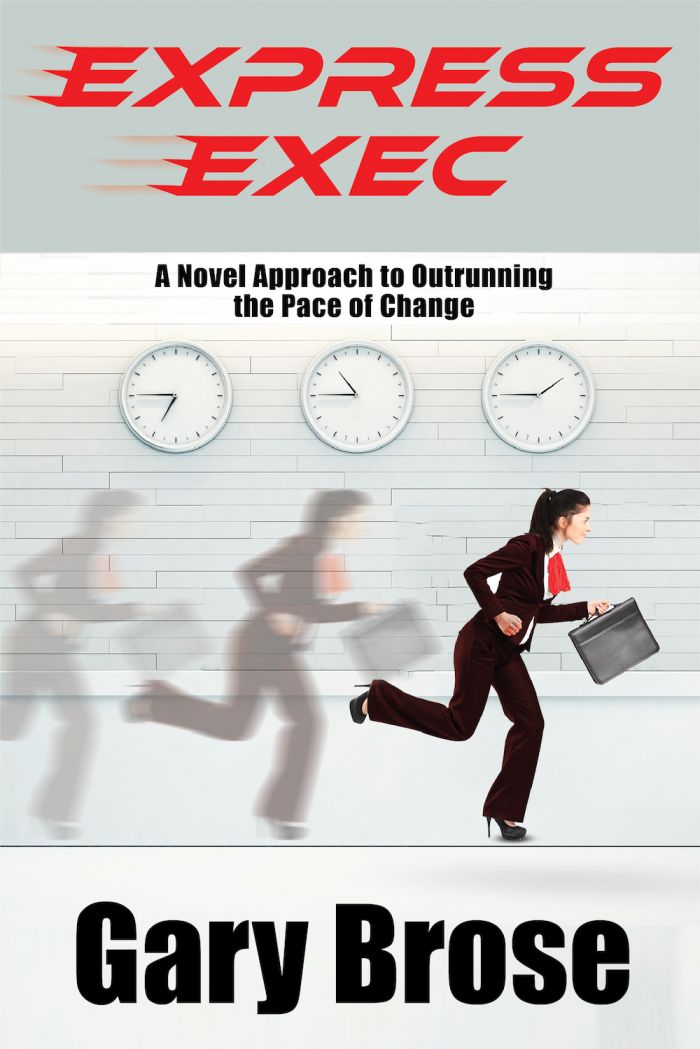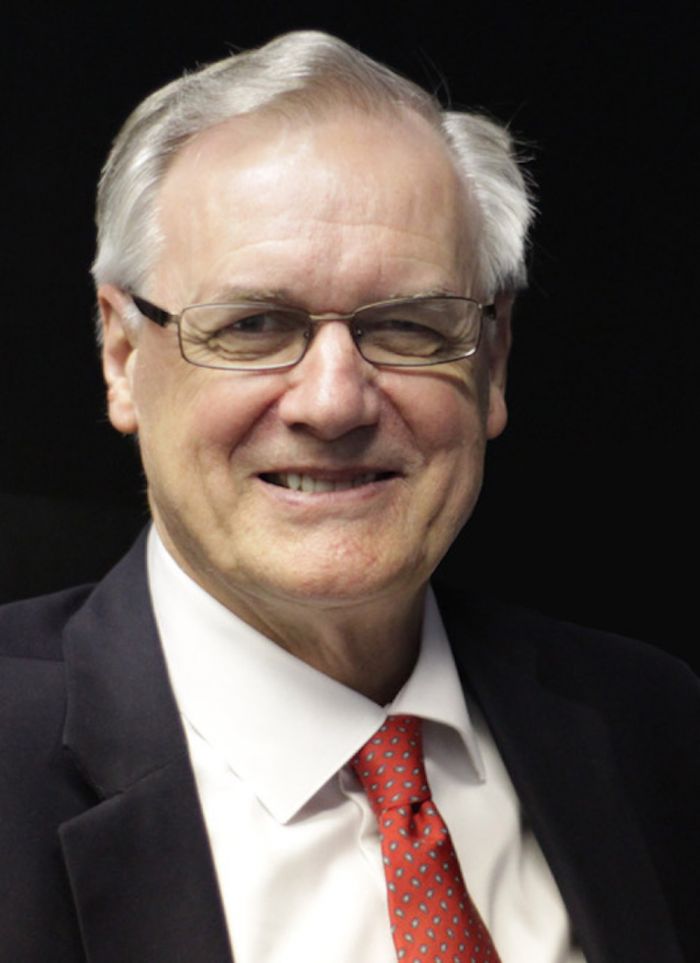
Gary Brose didn’t set out to be in the business world, but decades later he finds himself still in the trenches. His years of experience managing various companies and learning from other executives have given him plenty of ideas and new ways to increase employee satisfaction while still pleasing higher-ups. By focusing on small businesses, Gary translates major corporate policies to the masses. He’s written several books to guide owners to success over the years but his latest effort, Express Exec, is a little different. Written as a short novel, it engages small business owners much more than a typical business book. Gary tells JustLuxe about his inspiration for the creative business book:
You've run businesses for several years, who do you feel taught you the most about business?
I had to think about this one for a few minutes. Understand that I never ever intended to be in business for myself. In college, I studiously avoided taking any business administration classes because I was certain I wouldn’t be a “business dude.” I wanted to go into urban planning and work for the city of Seattle. In retrospect, not exactly my shrewdest decision.
It turns out that two people had the most impact on my business education. Dr. of Economics Christos Cotsakos, who was a District Director with FedEx when I was a manager there. He taught me about organization, long-term planning and more than I ever wanted to know about corporate politics. Turns out he was a good source as he went on to be the first VP of Europe, Africa, and the Middle East for FedEx, Chairman and CEO of E*TRADE and several other companies.
The other person was my mother who drilled it into me to say thank you for anything and everything. Good manners were important to her. Later in life, I learned that a simple thank you from the boss to the employee was one of the most powerful management weapons in my arsenal.
When did you decide to start writing business-oriented books?
In 2007, after twenty-five years of tortuous experimentation with trial and error within my own companies, I realized I had discovered some secrets of compensation structure that no one else knew. I learned what the Eight Essential Elements of a successful bonus program were. And I learned that if I designed my bonus plan with those eight elements in mind, it worked. And I mean it really worked. EVERY SINGLE TIME.
I learned how to design a bonus program so that everybody won. The employees were effectively motivated, engaged, and fairly rewarded. The company earned back a value equal to or greater than the cost of the program. And the customers (Don’t forget them!) received a better service or product than they had before. It was then that I realized I had to share that information with anyone who would take the time to listen to me or read about it. So, in 2008, I published Bonus Your Way to Profits!and found I truly enjoyed writing. Your new book, Express Exec, is different in that you wrote it in the form of a short novel. Why did you decide on that approach?
Over the last few years, I’ve come to the conclusion that a business owner’s greatest enemy is time. There’s simply not enough of it. Today the pace of change is overwhelming and requires a business leader to read more and move much faster when opportunities present themselves. I decided to write about it but struggled with my first few outlines. What was the problem? Well, it looked boring.
During discussions with a friend about it, I told him that it just wasn’t capturing the real-life pain and angst that accompanies the rapid change in any business. Knowing I’d written multiple novels under a pen name (which I plan to reveal soon…say about the summer of 2089), so he suggested I write this as a novel. I blew the idea off, but the more I thought about it, the more I realized it was perfect. I want the readers to immerse themselves in the story and feel the fears and joys of managing change. After all, mankind has told stories for centuries to illustrate points, so I decided a novel was the very best way to teach that. One of your primary focuses is on how to motivate employees. How do you feel most companies handle that?
Poorly. I think most Fortune 500 companies have little or no respect for the employees and no real interest in empowering them or concerning themselves with motivation and engagement. This presents a wonderful opportunity for medium and small-sized businesses to steal away market share while the conglomerates waste time and energy trying to direct an uninspired workforce. Smaller-sized companies are more open to making a change and maximizing their employees’ strengths and potential and that is what makes those companies viable.
What do you think your approach brings to the table?
In my businesses, I’ve relied primarily on two unique methodologies that complement each other and generate more positive action than any other systems. Those two are 1) restructuring compensation programs to use a “pay-for-performance” model and 2) delinking raises and reviews so that everyone is on a variable interval reinforcement schedule.
I used these two approaches (bonus programs and raises by merit anytime) in my companies and saw first-hand how incredibly powerful they are. Nothing I’ve ever done has as much ability to motivate and engage the employees as these two combined. These aren’t theories. What do I bring to the table? I bring new techniques that are proven in real life.
How did you come up with your approach?
Desperation. Really! Outright desperation. When I bought my first business in 1981, I was young, dumb, and underfinanced. I had a giant balloon payment to make in six months and not a nickel to my name. I couldn’t afford to pay top dollar to my workforce, but I promised the bank I would double the size of the company in six months so that they would loan me the money. I had to figure out a way to get my few employees fired up and ultra-productive in order to survive.
I did double the revenues of the company in six months! Too bad I didn’t understand bankers. They said I still wasn’t making enough profit so they declined to loan me anything. Fortunately, I had a backup plan and found private financing to keep me going. A hard lesson in finance but it started me on the trail of trying to create the best bonus program and, as it turns out, that and delinking were my real salvation.
Your focus is on small business owners and their never-ending battle to stay ahead of the pace of change. How do you think that pace has changed in the past few years?
The pace is accelerating. But the number of hours in a day is still 24 and for small business owners, it is a brutal pace. Not only do you have to run your business on a day-by-day basis but you have to plan ahead and stay flexible as you do it. You have to read more to understand this world, the marketplace, human nature, technology, and all the factors that could change the future and render your company, product, or service irrelevant overnight.
New inventions happen daily, computer advances change our world landscape constantly, and the changing demographics render old proven methods obsolete far too quickly. And the most difficult part of this is that as your company grows it isn’t just you who has to change—it’s everybody who works for you too. Let’s be real—NO ONE likes change. Yet, somehow, you have to lead people through it and help them embrace the change. It is the general recalcitrance of the workforce that slows you down and that is what I write about in Express Exec—how to move your company from a slow plodder to a nimble and fast-moving juggernaut. What do you feel most small business owners get wrong?
I think most small business owners are bogged down in the reality of simply getting through the day. They spend most of their time working hard and keeping their head above water. I include myself in that group. It is, I believe, a comforting feeling to do those things you know well and excel at. Business, as usual, is a seductive force. It makes you feel good to take care of the customers one at a time or create a fine product over and over again.
But the truth is, business, as usual, is a slow death for a small business. The owner needs to rise up above the dust, get out of her comfort zone, and look around now and then. She needs to look outside her company at the marketplace; at people; at changing values and innovative processes. It’s exceptionally hard to do and harder still to act on what you think you are seeing. Too often, what the owner sees is something that will soon gobble them up if swift, fearless, and certain action is not taken quickly. That is why having a workforce that is willing to change along with you is a must.
If you were to give a business owner one main piece of advice, what would that be?
Nothing great can ever be achieved without working with and through other people. What would be better? To have a company with one extremely motivated business owner and a hundred uninspired workers or to have a company with 1 fired-up owner and 100 motivated engaged, and inspired employees?
I know—too obvious. Of course, the latter. But if it’s so obvious, why do so few businesses do it? Build your team. Attract the best people you can find. Empower them. Cut them in on the action. Educate them about the business and the industry. Let them truly participate. Reward them in a true meritocracy. When you can align the employee’s enlightened self-interest with the corporate goals, time is no longer your enemy because your crew will embrace change.
Through ups and downs in business, Gary has learned how to empower other business owners to find their own success. Within the novel Express Exec, readers will learn how to support their employees, manage their time, and stay motivated for the changing road ahead. Gary Brose can be found at https://www.smallbizsherpa.com.










